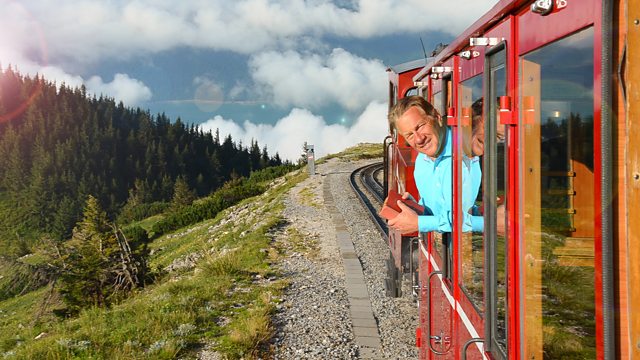
Episode 5
Michael embarks on a rail journey through Germany, steered by a Bradshaw’s guide published in 1936. His unique window on Europe between the wars takes him through a dark period in German history.
Michael embarks on a rail journey through Germany, steered by a Bradshaw’s Continental Railway Guide published in 1936.
His unique window on Europe between the world wars takes him through a tumultuous period in German history, when the nation’s first democracy and its vibrant culture of art, design and decadence were swept away by fascism, nationalism and the increasing likelihood of war.
In a vast stadium in Berlin, Michael hears how new rail lines were constructed to transport crowds of spectators to the Nazi Olympic Games in 1936. Michael learns how a planned boycott by the United States and other European nations failed and how the success of a black American athlete undermined the Nazi ideology of Aryan superiority.
At the Museum of Modern Art in Berlin’s Kreuzberg, Michael sees how a leading artist of the era, Georg Grosz, warned of the rise of fascism in a haunting self-portrait. Michael goes to the movies in Potsdam and discovers the success of the Babelsberg Studios, where directors such as Fritz Lang and stars such as Marlene Dietrich worked.
Last on
Music Played
-
![]()
Champagne Morales
Could It Be
Credits
| Role | Contributor |
|---|---|
| Presenter | Michael Portillo |
| Director | Tom Richardson |
| Series Editor | Alison Kreps |
| Executive Producer | John Comerford |
| Production Company | Fremantle |
Broadcasts
- Fri 18 Jun 2021 19:00±«Óătv Two except Wales & Wales HD
- Mon 21 Jun 2021 18:30±«Óătv Two Wales HD & Wales only
- Tue 27 Dec 2022 19:30
- Wed 28 Dec 2022 02:15
Steam Railways
A collection of programmes from the ±«Óătv archives on the beauty of steam locomotives.

